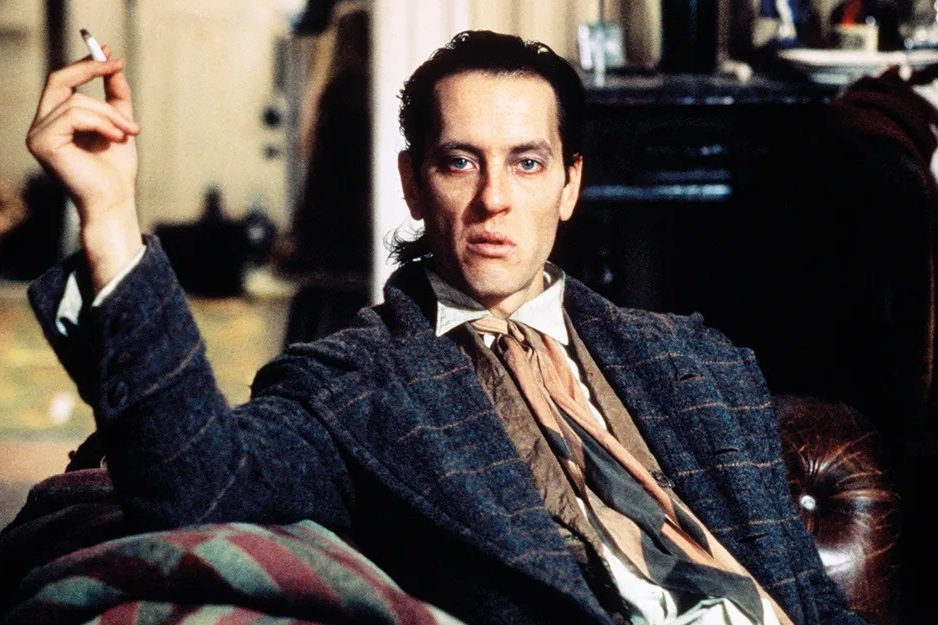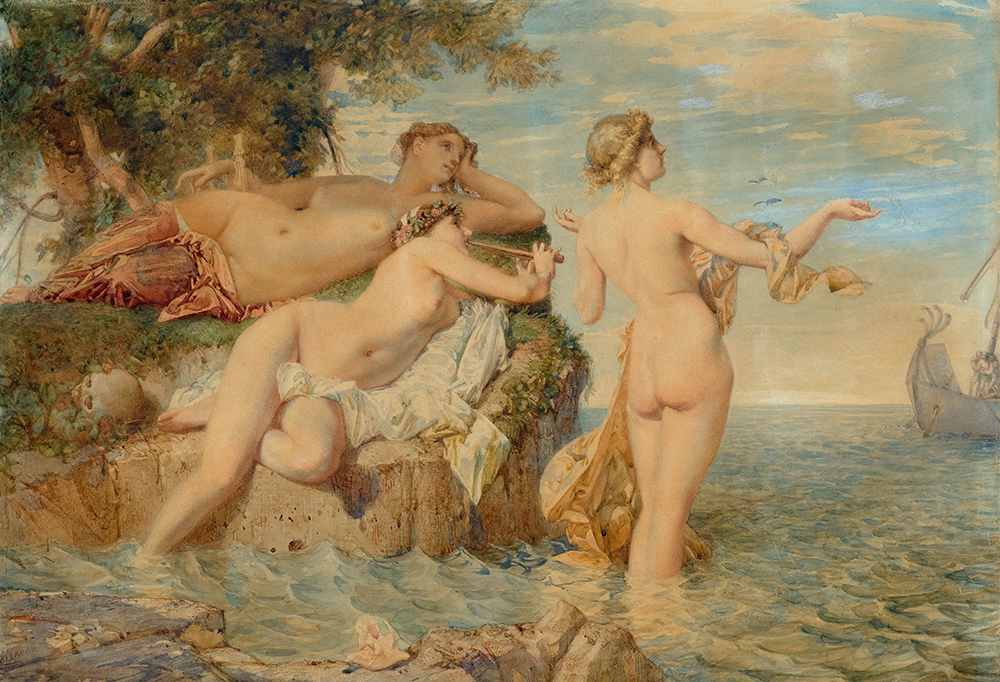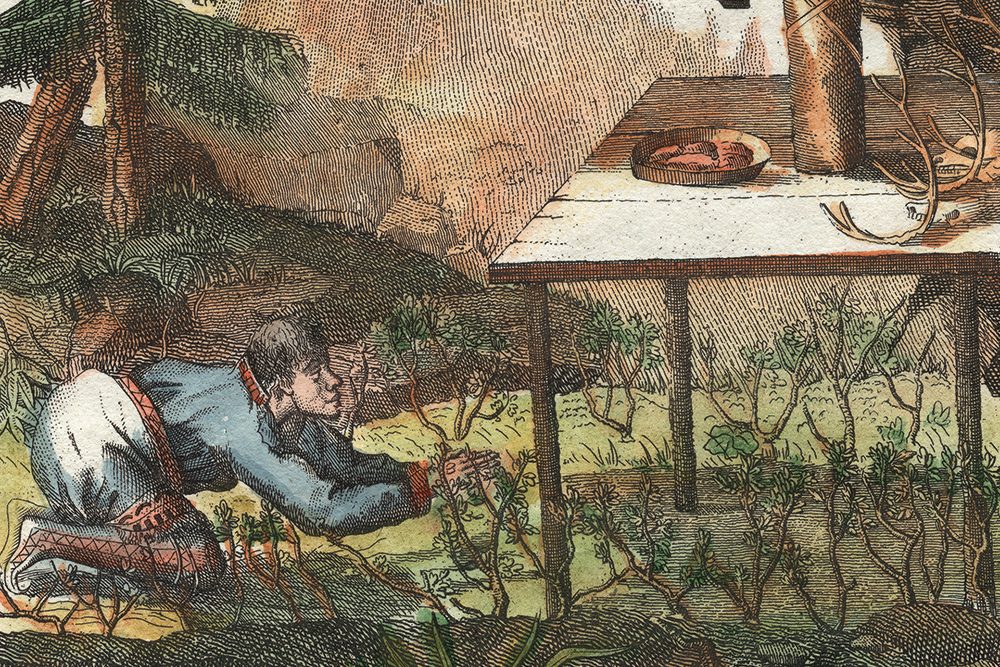There is an apocryphal story about a woman leaving a performance of Hamlet and complaining that it was nothing but a bunch of quotations strung together. Bruce Robinson’s 1987 movie Withnail & I can also feel like a caravan of famous lines: “I’ve only had a few ales”; “We’ve gone on holiday by mistake”; “We want the finest wines available to humanity!” In the 1990s, when the men’s magazine Loaded canonized the film in its launch issue and Chris Evans paid £5,000 for Withnail’s tweed coat, its swift elevation from box office failure to cult set text came at the price of reducing it to a boozy lark. A film about ruinous alcoholism thus inspired a student drinking game, although most players stopped short of Withnail’s last resort tipple, lighter fluid.
It’s a break-up movie, a last dance, an elegy wrapped in a comedy
As Martin Keady observes in two fine essays in Toby Benjamin’s book, the film’s reputation has matured because its fans have. You need some miles on the clock to fully appreciate a film about the end of one’s twenties at the end of the 1960s, and a friendship in winter. Consider the title of the play whose life-changing role finally separates Marwood (Paul McGann) from Withnail (Richard E. Grant): Journey’s End. “It’s decided before we meet them,” McGann tells Benjamin. “This is over and Withnail knows it’s over.” It’s a break-up movie, a last dance, an elegy wrapped in a comedy.
Benjamin considers Withnail & I “one of the few virtually perfect films ever made.” His labor of love — a handsome scrapbook of interviews with key personnel, memorabilia and testimonials from celebrity fans — is a matryoshka of nostalgia: a 2023 book about a 1987 film set in 1969, in which multiple characters mourn the end of an era. As Robinson neatly puts it, Uncle Monty (Richard Griffiths, not yet forty but somehow Edwardian) represents “the age that’s gone;” Danny the drug dealer (Ralph Brown) speaks for “the age they’re in;” and Marwood, trimmed and groomed for his departure, points to “the age to come.” On the surface it’s a caper, but in its bones it aches.
Robinson has been famously reluctant to discuss his defining work, but lockdown boredom dissolved his defenses and he is fabulously insightful here. Withnail & I began life in the winter of 1970 as an unpublished novel which loosely fictionalized the years that Robinson had just spent in a dive in Camden with Vivian MacKerrell, a dissolute aristocrat of uncertain talent. Their erstwhile housemates included Michael Feast, still a working actor, and David Dundas, who came to co-write the movie’s score. Only MacKerrell, who died in 1995, never outgrew the role of struggling actor and alcoholic.
In 1980, Robinson was commissioned to turn his novel into a screenplay. His Oscar nomination for writing The Killing Fields four years later gave him the clout to get it made. “Here is my morbid little autobiography,” he wrote to the producer Paul Heller. “In case it amuses not, I’d like it known that it’s a comedy and essentially very English.” By the time the cameras rolled, the screenplay was cut and polished like a diamond. Brown recalls that Robinson would dictate the “precise music” of each line, an approach that actors will only tolerate if the words are clearly unimprovable. Even the stage directions sing: “Everything looks ill. The walls and furniture look ill. Daylight looks ill.” Withnail and Marwood are at war with a cold, hostile England, from homophobic thugs and tearoom snobs to the punishing rain. You can practically smell the stale beer and cigarette smoke, and feel the damp in your joints.
Keady locates Withnail & I in the tradition of “bad buddy” stories, from Prince Hal and Falstaff to Fear and Loathing in Las Vegas (an acknowledged influence): the volatile chemistry between a mesmerizing chaos engine and the quieter sidekick who ultimately cuts him loose. Brought to life by the improbably teetotal Grant after Daniel Day-Lewis turned the part down, Withnail is pompous, cowardly, devious, entitled and irresistible, his charm a form of flamboyant despair. McGann, also making his film debut, plays Marwood as both enthralled and exhausted by his impossible friend.
Marwood says that his heart “beats like a fucked clock” while comparing Withnail to “a stopped clock.” Only one has the capacity to move forward. In an early draft, Withnail poured the last of his stolen Margaux ’53 into a double-barreled shotgun and fired it into his mouth, but the filmed ending is somehow bleaker than suicide. Seen without Marwood — the I and the eye — for the first and last time, he delivers a soused soliloquy from Hamlet to an audience of wolves against a backcloth of rain. At last we see that all along he had the talent and the soul of a tragedian but, to quote Marwood, he has made an enemy of his own future.
As for that future, the seventy-seven-year-old Robinson rages against Brexit, gentrification and the state of “this lamentable island of ours” in his cantankerous foreword: “What has happened to our country, where is England gone?” But he was asking the same question, for different reasons, in 1987 and 1970, too. England, like youth, is forever passing away.
This article was originally published in The Spectator’s UK magazine. Subscribe to the World edition here.





















